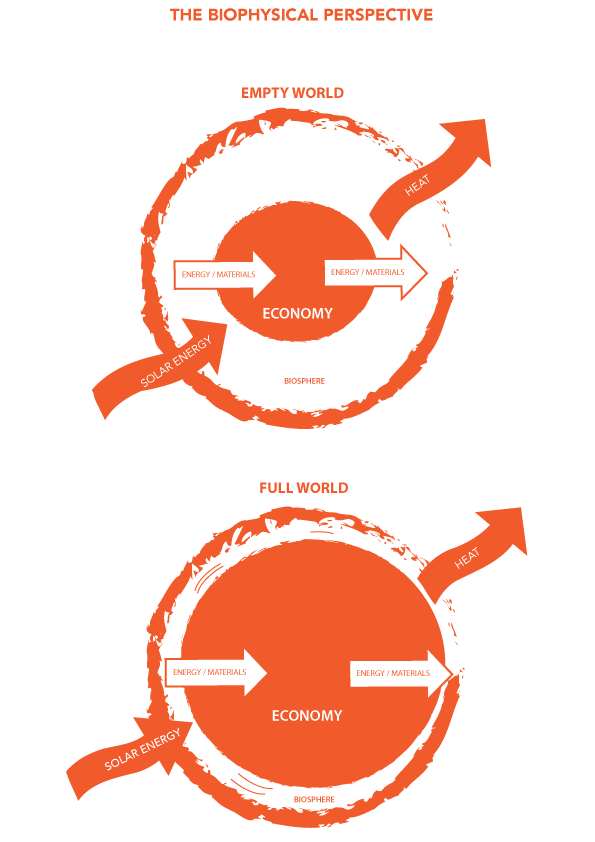A metabolic organism
Inge Røpke
The basic idea of ecological economics is that the economy can be perceived as a biological system – a metabolic organism that is kept alive by the flow of energy and materials. The word, metabolism, stems from the Old Greek word for change or transition and refers to the transformation of materials and energy. A metabolic organism is an organism with a metabolism. A metabolic organism consumes materials and energy from its environment into its digestive system and uses them to maintain its life processes. Through its metabolism, an organism is, thus, able to keep itself alive, but its metabolism also has an effect on the environment. The materials and energy that the organism absorbs later leave the organism in new forms and become part of cycles and processes in the surrounding environment. In many situations, a metabolic organism’s waste becomes useful elements in the surrounding environment, while in other cases, it can be considered harmful. In the case of the economy, one can say that it is an organism whose waste is sometimes harmful to the surrounding environment and to us.

Ecological economics thus views the economy as an organism with physical and chemical characteristics just like other biological organisms, which makes it possible to perceive economic processes as so-called biophysical processes. What is special about ecological economics is that it both describes economic processes with terms from ordinary economic theories, and with terms from the natural sciences such as biology and physics. For example, when economic theories describe economic development with terms such as prices, wages, balance of payments and economic growth, the same development can be seen from a biophysical perspective and be described with terms such as flows of energy and materials. When applying the biophysical perspective, you see connections other than those you see with traditional economic perspectives, and it can act, therefore, as a kind of critical tool of traditional understandings of economic connections. Firstly, people’s dependency on nature is emphasised in a completely different way, and secondly, the unequal distribution of resources between different groups of people is made clearer.
Next: Measuring the economy’s metabolism